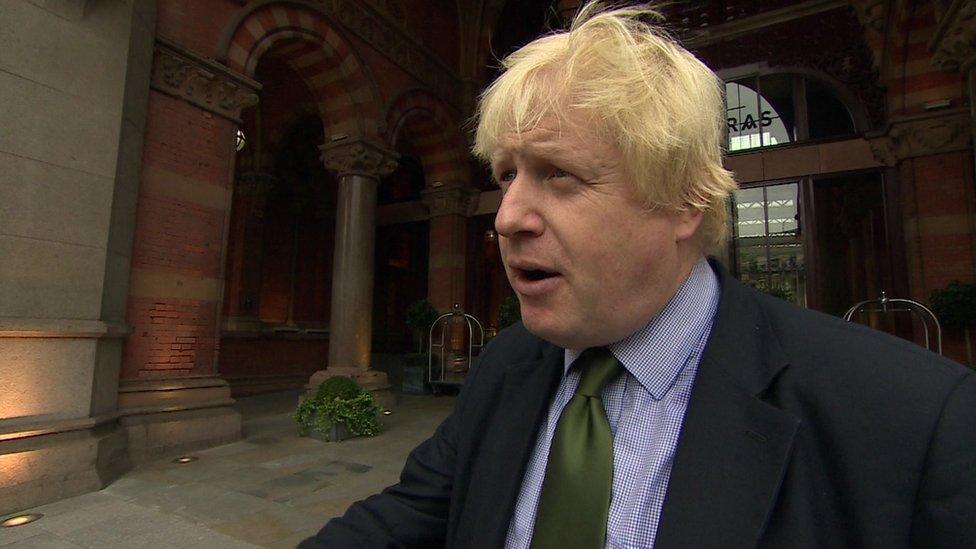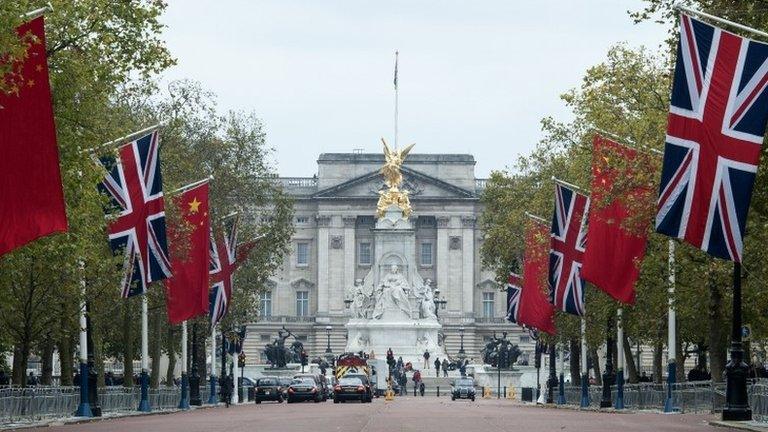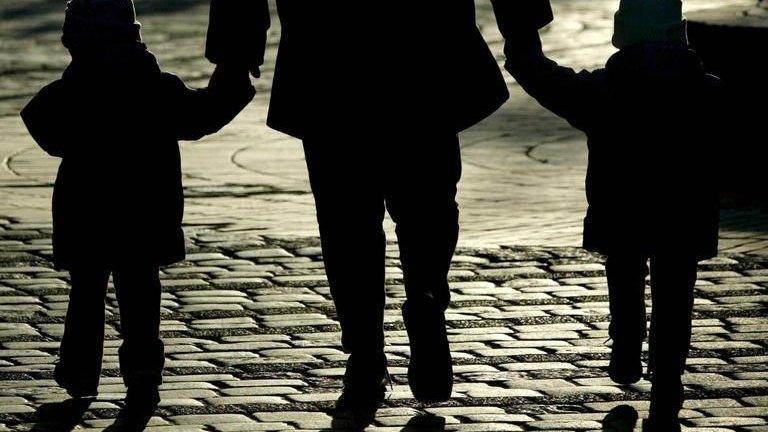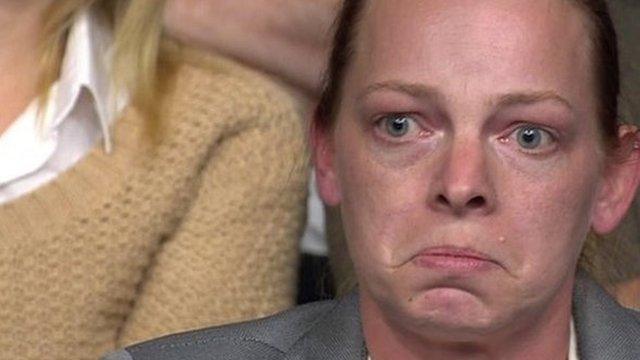Tax credit reforms must protect low earners, Boris Johnson says
- Published

London Mayor Boris Johnson says he is "sure" Chancellor George Osborne can come up with a way to protect people on low incomes from tax credit cuts.
The government is facing calls to reconsider the changes, which come into force in April, or to soften the impact on the people affected.
In the House of Lords, cross-bench peer Baroness Meacher is tabling a motion to amend the reforms.
The government says people's incomes will be protected by other measures.
Ministers point to the new National Living Wage, increased free childcare and a larger personal income tax allowance.
Mr Osborne is due to address Conservative MPs later, with a Commons debate about tax credits triggered by Labour taking place on Tuesday.
'Fatal' motion
Some Conservatives have expressed concern about the impact of the changes, and former minister Andrew Mitchell has suggested a "tweak" is needed before April.
Speaking BBC Radio 4's PM programme, Conservative MP Stephen McPartland - one of two Tories to vote against the reforms last month - said he was unhappy they had not been mentioned in his party's general election manifesto.
"There are still a number of Conservative MPs who are very unhappy," he said, adding that it would have helped if those now questioning the changes had spoken out earlier.
Mr McPartland, the MP for Stevenage, said he believed "mitigation" would be put forward by the Treasury.
"My understanding is that they are going to be looking at a range of issues to try to calm the situation down," he added.
Mr Johnson told the BBC tax credits, which supplement low earners' incomes, were "extremely cumbersome".
"Many people come to see me saying they've got an unfair situation, in that they are finding if they work more than a certain period every week, they get their tax credit withdrawn, so it's got to be sorted out," he said.
"We need a way forward. Obviously what I would like to see is working with the tax and benefits system and the living wage to make sure that hard-working people on low incomes are protected, and I'm sure the chancellor can do that."
The Conservative MP for Uxbridge and South Ruislip also told BBC Radio 4's The World at One programme he believed the tax credit changes were under "intensive review".
"Let's see what they come up with," he said. "I'm sure that they are working on it now."

Background

Tax credits are income supplements for people on low incomes
Currently those working a minimum of 16 hours a week can claim Working Tax Credit, while parents can also claim Child Tax Credits
The amount received is affected by how many hours someone works, their salary and how many children they have
July's Budget set out savings of £4.5bn to the tax credits bill
Changes to the thresholds come into force in April
In 2017, any family which has a third or subsequent child born after April 2017 will not qualify for more Child Tax Credit

From April, the threshold at which tax credits begin to be withdrawn will fall from £6,420 to £3,850, and people's income over this amount will be reduced more steeply.
MPs approved the changes in a vote last month. They were introduced using a statutory instrument, so did not need to pass through the House of Lords.
But Baroness Meacher is expected to table a rare "fatal motion" challenging the policy which would mean it is debated and voted on in the Lords, where the government does not have a majority.
She told The World at One she expected Conservative peers as well as Church of England Bishops would join her in opposing the measures.
"The most vulnerable people in our society are going to lose money," she said.
Baroness Meacher said it was "unbelievable" people earning as little as £3,850 were going to lose out and called on the government to "think again and protect people at the very very bottom".
Former Labour minister Frank Field has proposed his own alternative solution which he says would mitigate the effects of the reforms at no extra cost.
Mr Field told the BBC's Daily Politics he hoped the Lords would defeat the government and claimed that pressure from Conservative MPs to soften the cuts was also "being applied in the most intense form" to the prime minister and the chancellor.
- Published5 October 2015

- Published19 October 2015

- Published18 October 2015

- Published16 October 2015
